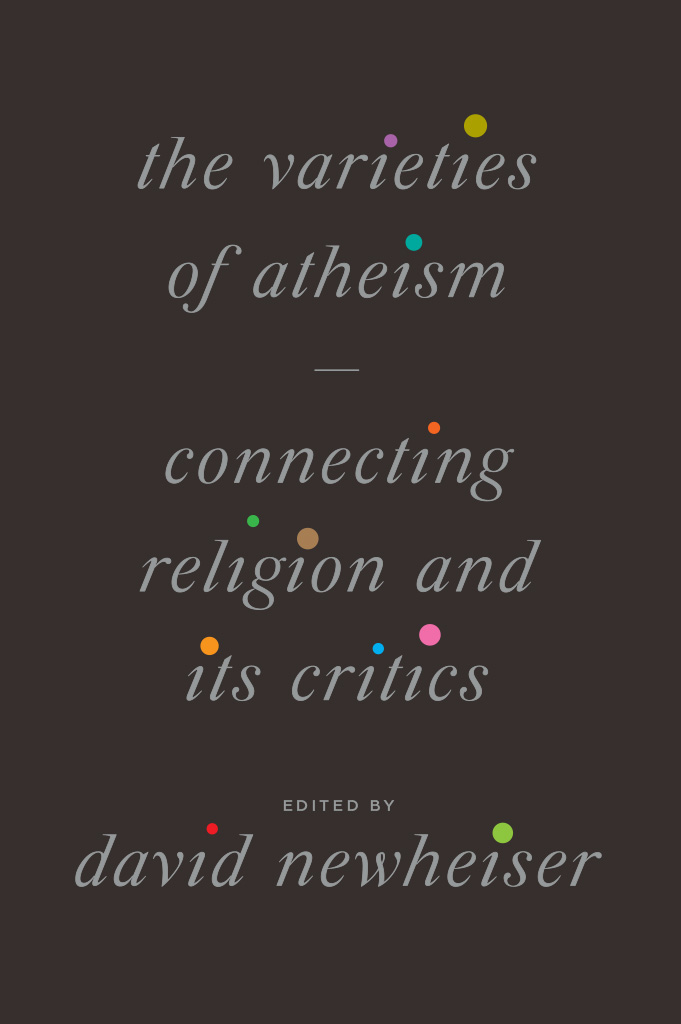
The Varieties of Atheism
The Varieties of Atheism
Connecting Religion and Its Critics
Edited by
David Newheiser
The University of Chicago Press
CHICAGO & LONDON
The University of Chicago Press, Chicago 60637
The University of Chicago Press, Ltd., London
2022 by The University of Chicago
All rights reserved. No part of this book may be used or reproduced in any manner whatsoever without written permission, except in the case of brief quotations in critical articles and reviews. For more information, contact the University of Chicago Press, 1427 E. 60th St., Chicago, IL 60637.
Published 2022
Printed in the United States of America
31 30 29 28 27 26 25 24 23 22 1 2 3 4 5
ISBN-13: 978-0-226-82267-9 (cloth)
ISBN-13: 978-0-226-82269-3 (paper)
ISBN-13: 978-0-226-82268-6 (e-book)
DOI: https://doi.org/10.7208/chicago/9780226822686.001.0001
LCCN: 2022017521
 This paper meets the requirements of ANSI / NISO Z39.48-1992 (Permanence of Paper).
This paper meets the requirements of ANSI / NISO Z39.48-1992 (Permanence of Paper).
Contents
David Newheiser
On Einsteins Cosmic Religious Sense
Mary-Jane Rubenstein
Humes Prefiguration of Rorty
Andre C. Willis
Nietzsche, Nominalism, and the Reductive Spirit
Denys Turner
Recovering the Link between Truth and Transformation
Susannah Ticciati
A Problem of Apophatic Theology
Henning Tegtmeyer
Abandonment, Absence, and the Empty Throne
Devin Singh
Living without God in Dantes Comedy
Vittorio Montemaggi
Dostoevskys Response to Russian Nihilism
George Pattison
Constance M. Furey
The Genealogy of Atheism
David Newheiser
Over the past fifty years religious identification has declined in many parts of the world. Although sociologists and scholars of religion have extensively studied secularization (seen as a social phenomenon), they have had less to say about atheism (understood as a personal identity). Nevertheless, since forging a nonreligious life matters to many people, other commentators have written a great deal on the topic. Philosophers and public figures weigh the evidence for and against theistic belief, and this debate reverberates in community groups, conferences, and social media channels. Unfortunately, for all its vigor, this conversation tends to reflect a stereotyped understanding of religion, and as a result its vision of atheism is similarly two-dimensional. In response, this collection draws on the academic study of religion to demonstrate that atheism is more diverse (and therefore more interesting) than many acknowledge.
This introduction frames the essays that follow by developing a brief genealogy of atheismfrom premodern Europe to the present. Atheism today is widely associated with the New Atheists, a group of commentators who claim that religion is irrational, unscientific, and morally corrosive. In order to justify the view that religion and atheism are squarely opposed, the New Atheists define them as competing hypotheses concerning the existence of a divine being. Although scholarly writing is generally less polemical, Anglophone philosophers tend to share the assumption that atheism and theism are incompatible beliefs. This reinforces the widespread impression that religious and nonreligious people are irredeemably at odds.
In response, I argue that defining atheism in terms of belief misrepresents its multiplicity. Just as scholars of religious studies have argued that it is misleading to equate religion with belief, the history of atheism makes clear that it is not simply a cognitive commitmenton the contrary, atheism incorporates ethical disciplines, cultural practices, and affective states. Against this background, these essays explore the complex relations of sympathy and resistance that connect particular atheisms with particular religious traditions. By developing a textured understanding of atheisms meaning and motivation, this collection opens new possibilities for conversation between those who are religious and those who are not.
Atheism as Hypothesis
Atheism has been subject to intense interest throughout the modern era, but it flashed into prominence fifteen years ago thanks to the New Atheists. Against the claim that religion and empirical science concern distinct dimensions of human life, these writers portrayed theism as a competitor to scientific explanation. As Richard Dawkins put it, The God Hypothesis is a scientific hypothesis about the universe, which should be analysed as sceptically as any other. At a time of growing anxiety about the danger posed by fundamentalist religious groups, this claim caught the popular imagination. In contrast to violent superstition, the New Atheists promised the dispassionate clarity of scientific knowledge.
The four books that inaugurated this movement each insists that fundamentalists are the true representatives of religion. Sam Harris opens The End of Faith by arguing that religious moderates abandon the clear teachings of their tradition to accommodate the norms of modern culture; according to Harris, the nature of religion is best expressed by extremists.
The enthusiasm with which the New Atheists discount religious diversity suggests that they need fundamentalism as a foil. In fact, some religious communities embrace scientific inquiry and condemn violence done in the name of religion, but their existence complicates the distinction between atheistic rationality and religious dogma. Perhaps for this reason, the New Atheists focus on those with whom their differences are especially stark. Where the fundamentalist defenders of religion portray unbelief as the source of social ills, the New Atheists argue that the opposite is true, but both sides agree that religion and modernity are incompatible.
Because the New Atheists dismiss theological moderation, some commentators argue that they criticize a stereotype of religion. What is more surprising is that, despite their status as the most prominent representatives of atheism today, their conception of atheism is similarly impoverished. In their view, religion is simply bad science, a set of beliefs that can be falsified through empirical observation. Although they worry about the behaviors that follow from religious beliefs, they see belief as the source of the problem, and so their solution is to replace irrational faith with scientific understanding. Depicting religion as a set of quasi-scientific assertions allows the New Atheists to claim that theism and atheism are incompatible hypotheses. However, just as religious practice is enormously diverse, there is reason to suspect that atheism is more varied than this dichotomy allows.
Atheism as Belief
The scholarly literature on atheism is generally more measured than the public-facing debate, but it rests on similar assumptions. In his classic essay Why I Am Not a Christian (1927), Bertrand Russell writes:
Religion is based, I think, primarily and mainly upon fear.... Fear is the parent of cruelty, and therefore it is no wonder if cruelty and religion has gone hand-in-hand. It is because fear is at the basis of those two things. In this world we can now begin a little to understand things, and a little to master them by help of science, which has forced its way step by step against the Christian religion, against the Churches, and against the opposition of all the old precepts. Science can help us to get over this craven fear in which mankind has lived for so many generations.
Next page
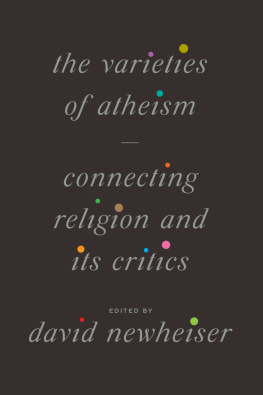
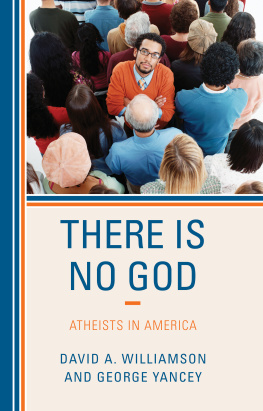

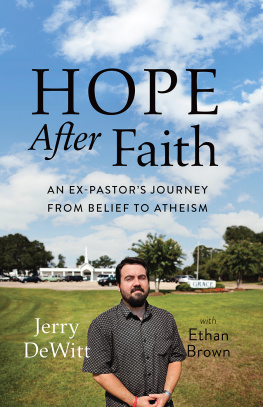
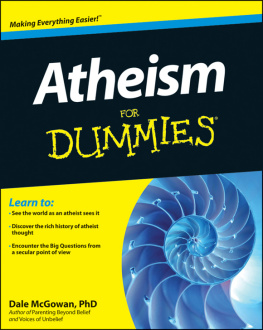

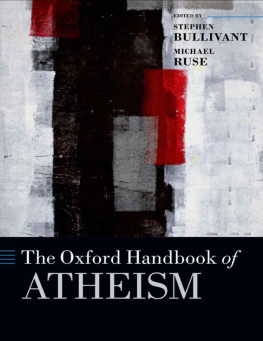
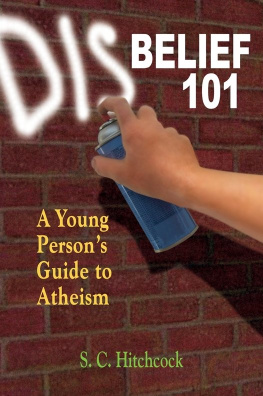
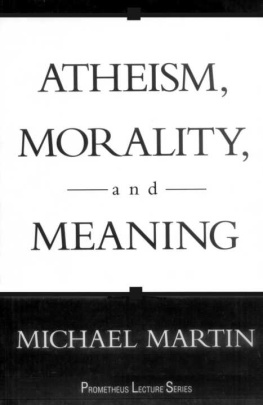

 This paper meets the requirements of ANSI / NISO Z39.48-1992 (Permanence of Paper).
This paper meets the requirements of ANSI / NISO Z39.48-1992 (Permanence of Paper).